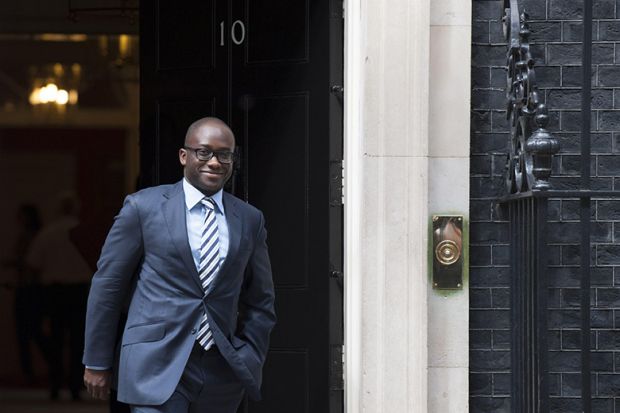Sam Gyimah, the UK government's universities and science minister, has been criticised for declining to attend a parliamentary select committee looking at research integrity.
Mr Gyimah was due to appear before the Commons Science and Technology Committee alongside UK Research & Innovation chief executive Sir Mark Walport on 6 March.
However, in a letter published by the committee on 5 March, Mr Gyimah explains that he will not attend the final session of the inquiry into research integrity.
In his letter, he says that Sir Mark is “better placed” to answer specific questions on the issue of research integrity and “it would be a better use of the committee members’ time to focus questions on research integrity to UKRI, as opposed to myself as a government minister”.
Responding to Mr Gyimah’s decision, the committee’s chair Norman Lamb MP said he was “disappointed that the science minister has decided not to appear before the committee next week, to answer our questions on research integrity.”
“He tells us that the detail of how government-funded research is undertaken, and its standards and integrity, is not a matter for him,” added Mr Lamb, who said this attitude “risks pre-judging our questions, including on the scope and appetite for a different regulatory approach in this area”.
Mr Lamb added that it would still “closely probe the minister’s position in the session with Sir Mark Walport”, but that Mr Gyimah’s “non-attendance risks the research community concluding that this important area is not a ministerial priority.”
The hearing was due to consider trends and developments in research fraud, misconduct and mistakes in research and the publication of research results at universities.
Last month Mr Gyimah did, however, give evidence at a hearing on the issue of free speech on campus.
He told the Joint Committee for Human Rights, chaired by Harriet Harman, on 7 February, that he was concerned about “a creeping culture of censorship in our universities” and a number of recent events – including a brief scuffle between activists and Tory MP Jacob Rees Mogg at a student event in Bristol on 3 February – had given him cause for concern, adding that “these restrictions and disruptions are unacceptable”.




